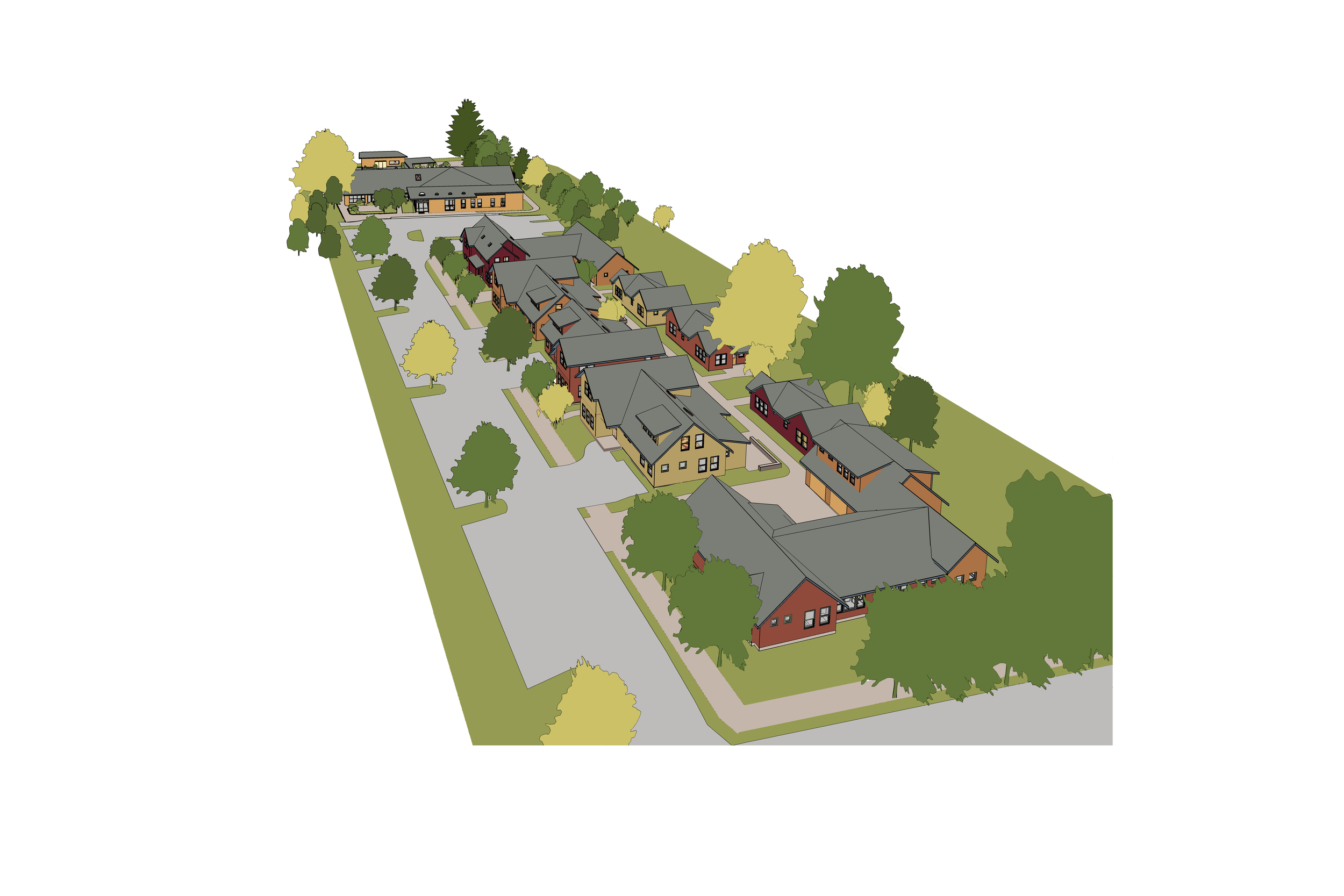Edwards Center Pocket Housing
Rowell Brokaw Architects is currently working on a new concept for an innovative pocket housing development. Located in Aloha, Oregon just west of Portland—the Aloha Project is the first of its kind in the Portland area, disability advocates say, and will include 10 homes. Five will be three- to five-bedroom houses. The other five will be 900-square-foot "mother-in-law" cottages that sit behind the larger residencies. Some will be families of children with disabilities. Some will be families whose adult children choose to live alone, but nearby. And some will be shared housing or other combinations based on preference.
The Aloha project is the vision of the Washington County-based Edwards Center which opened its doors in the early 1970s as a response to that era's trend: big, impersonal institutions. Today, the nonprofit provides housing, employment and other individualized services for developmentally disabled adults in 18 locations across the Portland area. Their properties include single-family homes, duplexes and apartments, all with overnight staffing and 24 hour support available.
Working closely with Creative Housing Solutions' George Braddock and Rowell Brokaw Architects, the Edwards Center's is to create a truly integrated community setting that will provide housing to disabled adults and serve as a bridge between those we serve and the surrounding, non-disabled community. Instead of building another group home, the nonprofit is creating an entire neighborhood—with space for the disabled residents' families. This new model, it is believed, will save money, because clients won't require full-time nurses. Instead, they'll pool resources and share one nurse, based out of the community center. They'll have their families and neighbors looking out for them, too.
The first phase of the project, the Edwards Community Center, was completed in early 2013. It was an extensive renovation and expansion that provided 11,000 sf of social, classroom, gathering and office space. The renovation transformed the original dark, inward-looking building, used recycled brick and roof tile, and introduced contemporary Northwest forms to make a community gathering place reaching out to welcome everyone.
The second phase of the project is the development of an adjacent pocket neighborhood with innovative family housing. The design reaffirms the organization’s values by creating an integrated pocket neighborhood that provides choice, independence and a sense of community.


